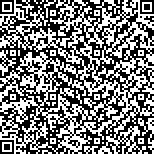| Quote
: |
贺佐梅,夏帅帅,邵峰,吴华英,吴正治,谢梦洲.基于iTRAQ标记技术研究慢性浅表性胃炎脾虚证的唾液差异表达蛋白[J].湖南中医药大学学报英文版,2017,37(8):813-818.[Click to copy
] |
|
| |
|
|
| This paper
:Browser 3655times Download 1253times |
| 基于iTRAQ标记技术研究慢性浅表性胃炎脾虚证的唾液差异表达蛋白 |
| 贺佐梅,夏帅帅,邵峰,吴华英,吴正治,谢梦洲 |
| (湖南中医药大学中医诊断研究所, 湖南 长沙 410208;广东医学院附属福田医院, 广东 深圳 518033) |
| 摘要: |
| 目的 运用iTRAQ定量蛋白质组学技术筛选慢性浅表性胃炎(chronic superficial gastritis,CSG)不同中医证候患者唾液中的潜在特异性生物标志物,探索一种客观化、规范化的中医辨证方法。方法 采用iTRAQ定量蛋白质组学技术及后期生物信息学方法,筛选CSG脾虚证28例与CSG湿热证28例对比以及与正常对照组28例对比的唾液差异蛋白质分析。结果 CSG脾虚证对比CSG湿热证,Ratio≥1.5的共有128个蛋白,Ratio≤0.667的共有39个蛋白;CSG脾虚证对比正常对照组Ratio≥1.5的共有113个蛋白,Ratio≤0.667的共有72个蛋白。筛选出多个重要蛋白,如Keratin家族、ANX家族和apolipoprotein家族中的多种亚型以及γ-谷氨酸转移酶等,可能与CSG不同中医证候的发生、发展有密切的关系。结论 iTRAQ唾液蛋白质组技术筛选出了多个具有潜在价值的CSG中医证候无创诊断的重要蛋白,值得进一步深入研究。 |
| 关键词: 慢性浅表性胃炎 中医证候 脾虚证 湿热证 分子诊断 唾液 定量蛋白质组学 iTRAQ |
| DOI:10.3969/j.issn.1674-070X.2017.08.001 |
| Received:January 03, 2017 |
| 基金项目:国家自然科学基金资助项目(81273665);湖南中医药大学中医诊断国家重点学科开放基金项目(2015ZYZD09);湖南省2011数字中医药协同创新中心。 |
|
| Research of Saliva Differential Expressed Proteins in Chronic Superficial Gastritis with Spleen Deficiency Syndrome Based on ITRAQ Labeling |
| HE Zuomei,XIA Shuaishuai,SHAO Feng,WU Huaying,WU Zhengzhi,XIE Mengzhou |
| (Diagnostic Research Institute of TCM, Hunan University of Chinese Medicine, Changsha, Hunan 410007, China;Futian Affiliated Hospital of Guangdong Medical Institute, Shenzhen, Guangdong, 518033, China) |
| Abstract: |
| Objective To screen the potential specific biomarker in saliva of chronic superficial gastritis (CSG) with different TCM syndromes by iTRAQ quantitative proteomics, and to explore the objective and standard TCM syndromes differentiation methods. Methods Saliva samples were taken from 28 cases of CSG patients with spleen deficiency syndrome (group A), 28 cases of CSG patients with damp-heat syndrome (group B) and 28 cases of normal control volunteers (group C), in which differential expressed proteins were analyzed by iTRAQ quantitative proteomics and bioinformatics methods. Results 1.In the comparison between group A and group B, it screened out 128 up-regulated proteins (ratio≥1.5) and 39 down-regulated proteins (ratio≤0.667). 2. In the comparison between group B and group C, it screened out 113 up-regulated proteins (ratio≥1.5) and 72 down-regulated proteins (ratio≤0.667). 3. This study screened out a large number of differential expression proteins in saliva, including various subtypes in Keratin family, ANX family, apolipoprotein family, and γ-glutamyltransferase, which may be related to the occurrence and development of different syndromes of CSG. Conclusion The multiple potential molecular biomarkers in saliva to diagnose CSG with different TCM syndromes were screened by iTRAQ quantitative proteomic technology, which is worthy of further study. |
| Key words: chronic superficial gastritis TCM syndromes spleen deficiency syndrome damp-heat syndrome molecular diagnosis saliva quantitative proteomics iTRAQ |
|

二维码(扫一下试试看!) |
|
|
|
|


